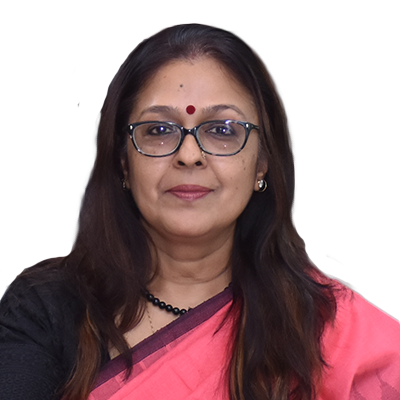
Dr. Pallavi Jain Govil, IAS
Director General
Directorate General of Hydrocarbons (DGH), Ministry of Petroleum and Natural Gas, Government of India
Pallavi Jain Govil belongs to the Indian Administrative Service. She has served in various assignments in the State of Madhya Pradesh and in the Central government for nearly 30 years, and is currently the Director General of Hydrocarbons. Prior to this, she has served as Principal Secretary to Government of Madhya Pradesh, Tribal Affairs, and Public Health Departments.
Her current role is to oversee, facilitate and promote upstream activities in the petroleum and natural gas sector and advise and assist the Government in these areas with a view to enhancing exploration and production activities and optimal tapping of the country’s hydrocarbon resources.
Previously, she also served as Director in the Prime Minister’s Office from 2009 till 2014, where she looked after the Ministries of Finance, Commerce, Corporate Affairs, Industrial Policy and Promotion, Heavy Industries, as well as some social sectors like Rural Development and Women and Child Development. In this role, she assisted the former Prime Minister in the scrutiny of important domestic policies and legislative proposals. She has earlier held assignments as Director, Institutional Finance for the Government of Madhya Pradesh and served as the District Collector and the CEO of District Governments (Zila Panchayats) in various districts of Madhya Pradesh such as Bastar, Mandla, Rajgarh, Shajapur and Bhopal. She has also consulted with the World Bank.
Pallavi Jain Govil holds a Doctorate in Economics from the City University New York, a Master’s in Public Policy from the School of Public and International Affairs, Princeton University, and a Master’s in Economics from the Delhi School of Economics. Her research has been on fiscal decentralization and its impact on social outcomes like health and education. She has written and commented on a range of contemporary economic and social issues in India – gender relations, unorganized sector workers, social security nets, local government, as well as on fiscal policy issues.
She is married, with two children.
